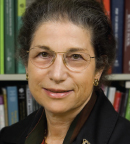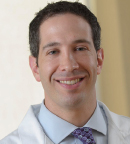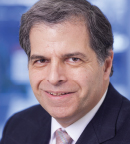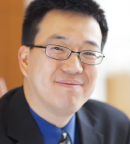
Patricia Ganz, MD
Moderating a press conference where Dr. Chen presented his study findings, Patricia Ganz, MD, Director of Cancer Prevention and Control Research at the University of California Los Angeles (UCLA) Jonsson Comprehensive Cancer Center, called this study “interesting and important.”
She continued: “There are few population-based studies of insurance claims in younger populations. These data allow us to look at patterns of care in the United States. For a long time, giving chemotherapy at the end of life has been a Quality Oncology Practice Initiative [QOPI] measure. We have been discussing this for a very long time and haven’t seen any movement. This shows we still have a lot of work to do.”
When Dr. Chen was asked what factors might account for the lack of movement to change practice to reflect recommendations, he noted physicians’ desire to help patients and offer some kind of treatment. “Along with that, oncologists are bad at estimating life expectancy and having difficult end-of-life discussions,” he added.
Additional Comments

Andrew Epstein, MD
ASCO spokesperson Andrew Epstein, MD, of Memorial Sloan Kettering Cancer Center in New York, shared his thoughts on this issue. “End-of-life discussions are difficult. Education is important to improve communication during these challenging conversations.”
Expanding on this thought, Dr. Epstein commented that physicians, nurses, and other cancer care professionals need to be better trained in having these challenging conversations about end-of-life planning, to determine what is most important to patients and their families. “It needs to be a patient-centric approach to care delivery,” he added.

Gary Schwartz, MD
In a separate interview, Gary Schwartz, MD, Chief of Hematology and Oncology at New York Presbyterian/Columbia University Medical Center, New York, suggested the major factor driving unwarranted and costly aggressive end-of-life care was pressure from patients and their families to “do something.” He continued: “Many times that something is use of very expensive new drugs that only prolong life for a matter of weeks or months. There is tremendous pressure to use new, expensive therapies.”
Dr. Schwartz cited new immunotherapies as a case in point. “These drugs cost $150,000 each year, and we don’t know how long to treat using them, he admitted.
“This paper highlights important issues that affect our national health-care burden but does not provide solutions. As a society, we have to face these issues. We need a global discussion on the cost of end-of-life medical care and how to contain medical costs with inappropriate use of resources,” Dr. Schwartz stated. ■
Disclosure: Drs. Ganz, Epstein, and Schwartz reported no potential conflicts of interest.


